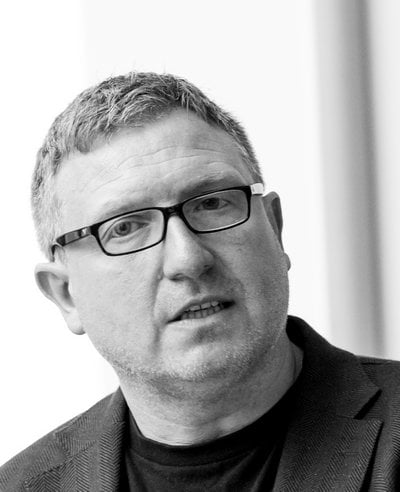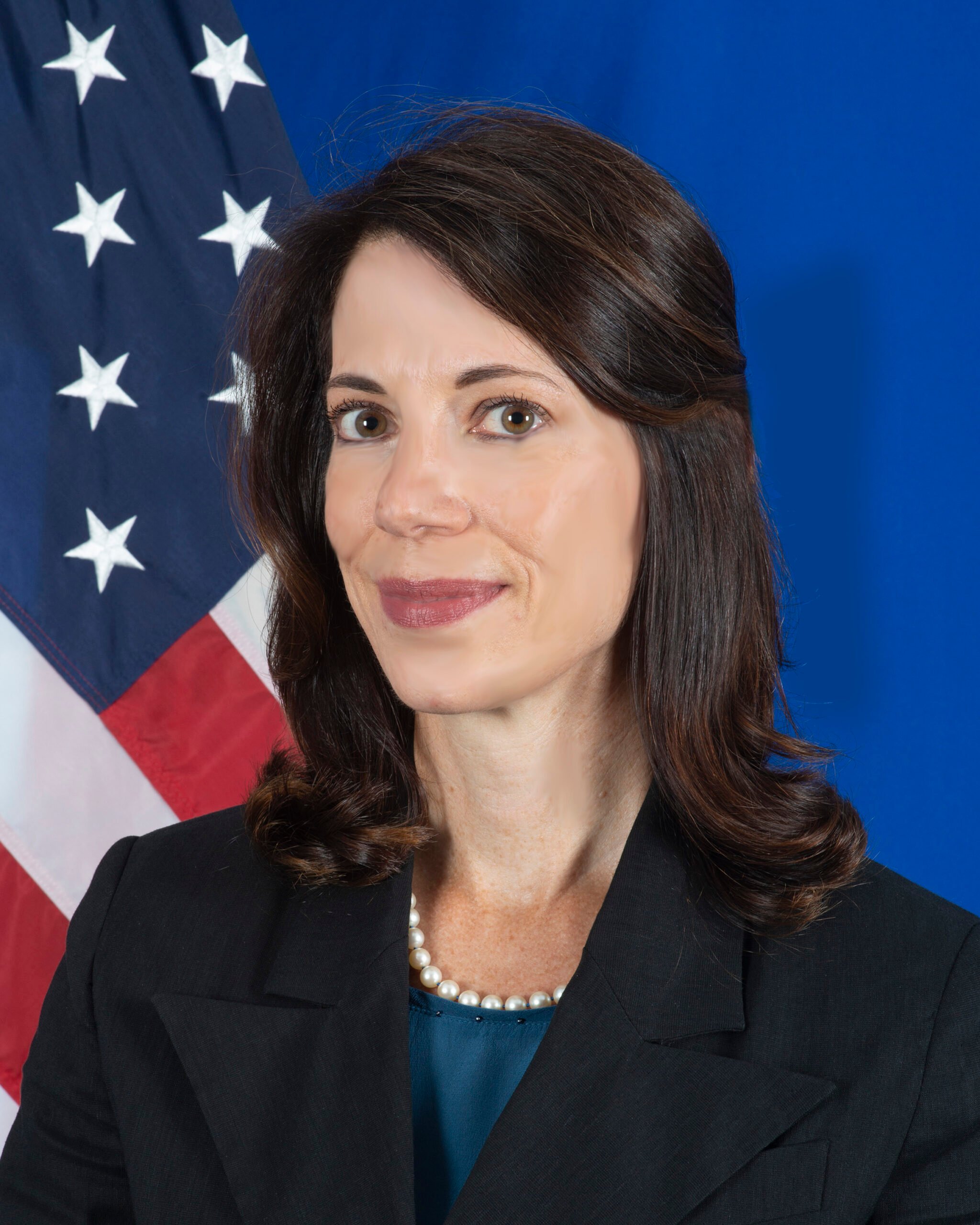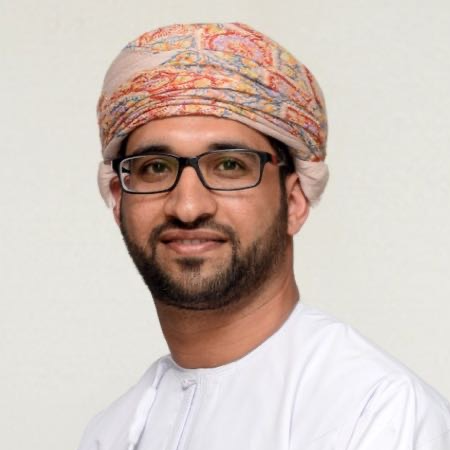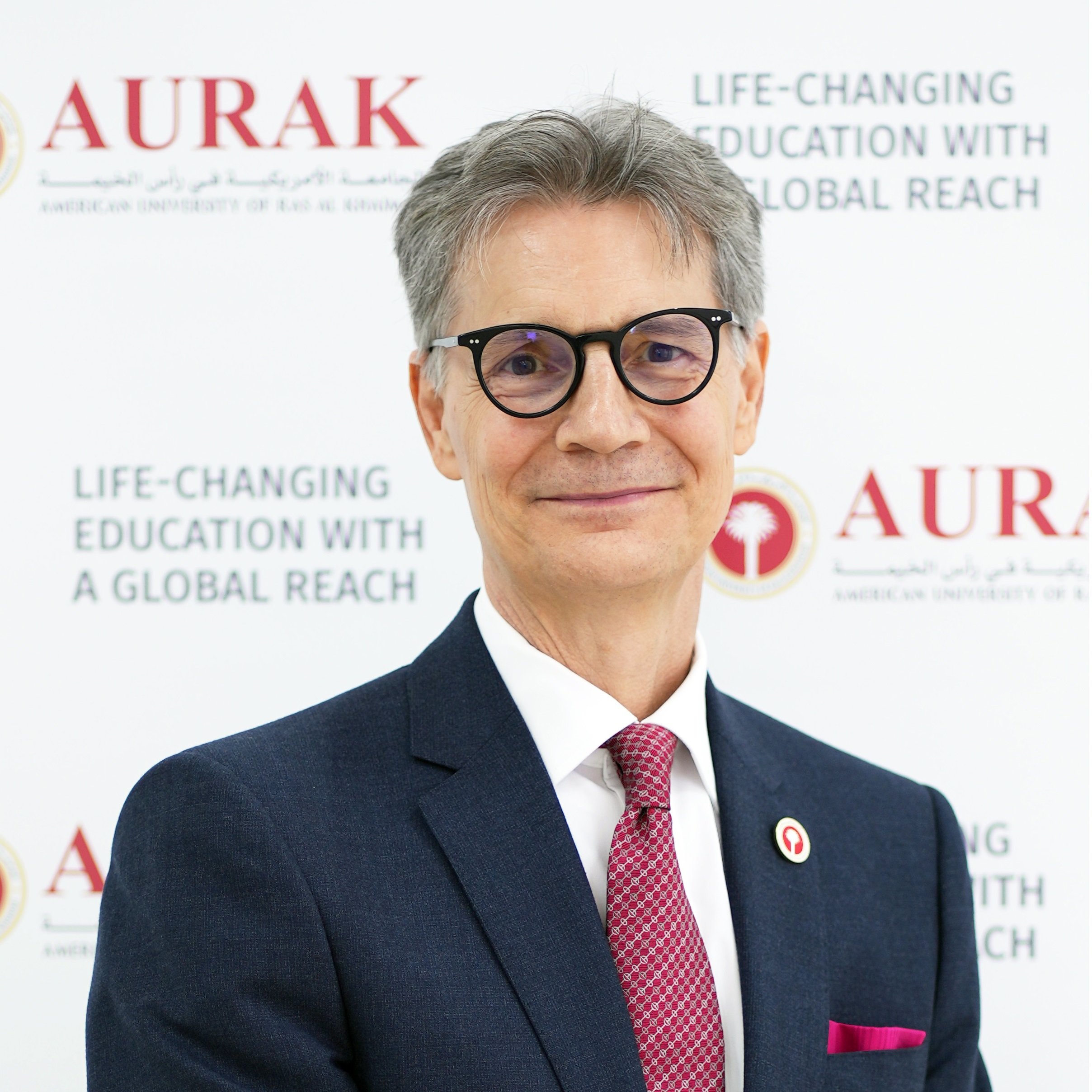Towards Sustainable Education: Global Goals and Local Contexts
GCES Conference 2023
Get in touch
GCES Symposium 2023
The 10th Biannual Gulf Comparative Education Society Symposium
As we approach the end of the quarter-century, the 10th anniversary of the Gulf Comparative Education Society (GCES) Symposium invites scholars, thinkers, and educators to reflect on the intersection between sustainability in education, localization, and public policy in the Gulf region.
This Symposium aims to provide scholars with the space to reflect on how education in the Gulf can become more sustainable by 2030 by focusing on key issues within the sector, such as equity and inclusion, privatization, education reform, and teacher professional development, among others. Comparative studies are further welcome.
The 2023 GCES Symposium calls for papers that explore (but are not limited to) the following areas:
- Diversity, equity, and inclusion in education
- Privatization of schools and curricula
- Philanthropic flows and partnerships within the education sector
- Mental health, emotional intelligence, and education psychology
- Experiential learning, lifelong learning, and alternative practices
- Teacher training, management, and professional development
- Education as a means for greenwashing
- Role of schools/universities as community hubs for environmental education
- System reform and education policy

Speaker
Eleanor Burton
Eleanor Burton works in Educational Advising and Training in Kuwait and as Regional Educational Advising Consultant for GCC. Previously, she has spent time working with Insight Intercultural Journal in Turkey in addition to acting as the manager of a UN-funded Social Service program for urban refugees with Swiss NGO in Istanbul. Most recently, she has worked as Director of Communications for FSRI.
Keynotes and Guest Speakers
Professor Mario Novelli (Centre for International Education, University of Sussex)
Mario Novelli is Professor in the Political Economy of Education at the Centre for International Education (CIE), University of Sussex, and Dean’s Distinguished Research Fellow, Faculty of Education, Monash University, Melbourne, Australia (2021-2024). He is also the Co-Editor in Chief of the Journal Globalisation, Societies & Education, and ex-President of the British Association of International & Comparative Education (2021-2022). He previously worked at the University of Amsterdam, and the University of Bristol, working across the disciplines of Education, International Development, Geography and Politics. Drawing on the tools of critical political economy, his recent work has focussed on the relationship between Education, Conflict and International Development. He has written on issues relating to the global governance of education; peacebuilding and education; the securitisation of education; peace education; and the role of social movements in conflict contexts. Further information and publications can be found at https://profiles.sussex.ac.uk/p196279-mario-novelli
H.E. Consul General Meghan Gregonis
Meghan Gregonis is the United States Consul General in Dubai starting August, 2021. A career member of the U.S. Senior Foreign Service, Meghan was the U.S. Consul General in Munich, Germany from 2018-2021. She managed support for the two largest in-person U.S. delegations and the first virtual delegation to the Munich Security Conference during her time there. She also focused on innovation themes in Germany and launched the first Germany-wide Transatlantic Innovation Week to further develop innovation and trade and investment relationships.
Meghan’s previous overseas assignments include Islamabad, Riyadh, Rome, Baghdad, and Jerusalem. Her Washington assignments include directing public engagement efforts in Europe; managing relations with Turkey from the State Department’s Bureau of European and Eurasian Affairs; and coordinating U.S. engagement with Jordan from the Bureau of Near Eastern Affairs.
Meghan is a distinguished graduate of the National War College and an alumna of New York University. She has completed graduate studies at Temple University and earned professional certifications from the University of Southern California and MIT’s Seminar XXI for national security professionals.
Dr. Khalaf Al'Abri (Sultan Qaboos University)
Dr. Khalaf Al'Abri is an Assistant Professor in the Leadership of Education Systems and Policies in the Department of Educational Foundations and Administration, College of Education, Sultan Qaboos University. He is also the Incoming President of the Gulf Comparative Education Society (2023-2025). He obtained a BA in Education majoring in English Language from Sultan Qaboos University in 2006, an MA in Educational Leadership from the University of Queensland in Australia, and a PhD in Education Systems and Policies from the University of Queensland in 2016. Khalaf is currently the Director of the Main Library at Sultan Qaboos University, and prior to that (2016-2020) was the Head of the Quality Assurance and Academic Accreditation Unit at the College of Education. He is an external reviewer in the register of the Omani Academic Accreditation Authority. Khalaf is interested in studying the impact of globalization on education systems and policies. His current research focuses on education for global citizenship, education goals for sustainable development, and internationalization of education.
Dr. David A. Schmidt (American University of Ras Al Khaimah)
David A. Schmidt is a seasoned administrator with over 33 years of broad-based experience as an executive academic leader and faculty member, spanning a wide range of public, private, and international institutions. Before joining AURAK, he served as President of the American University in Dubai (AUD), and Vice Provost for International Affairs and Professor of Global Studies and Human Geography at Middle Tennessee State University. He has held various leadership positions and played a vital role in transforming a range of public, private, and state institutions, representing the landscape of higher education, including the University of the Pacific, the University of Wisconsin System, and Yale University.
Dr. Schmidt holds a Ph.D. from Saint Louis University, an MA from The Ohio State University, and a BA from the University of Wisconsin. He has written extensively on post-WWII women’s rights and education issues in Japan and South Korea. He is a recipient of the AIEA (Association of International Administrators) Presidential Fellowship, the Korea Foundation Research Fellowship, and the Japan Mombushō Fellowship. He also participated as a fellow in Harvard University’s IEM (Institute for Educational Management).
Fatiah Touray (NYU Abu Dhabi's Office of Inclusion & Equity)
Fatiah Touray is the Executive Director for Inclusion and Equity at NYU Abu Dhabi. She leads the development and implementation of programs and initiatives that promote a more inclusive and diverse campus environment. Fatiah collaborates closely with the Office of the Provost, Spiritual Life, Intercultural Education, and Conflict Transformation (SLICECT), and students, faculty, and staff. She brings extensive leadership experience in higher education, complemented by her non-profit work, and training as a lawyer and classroom teacher.
Fatiah comes to NYU Abu Dhabi from Sarah Lawrence College where she was the inaugural Vice President for Diversity, Equity, and Inclusion and Special Assistant to the President. Previously, she was the Assistant Dean of Diversity and International Advising and the Director of the Academic Achievement Program at the College of Arts and Science at NYU. Fatiah's academic achievements include a BA with Honors in Journalism and Africana Studies from NYU, a Master of Science in Education from The City University of New York - Brooklyn College, and a JD from Howard University School of Law. Throughout her career, she has demonstrated exceptional leadership skills, consistently advocating for marginalized communities and fostering a culture of inclusion.
Prof. Bruce Walker Ferguson (American University of Iraq, Sulaimani)
Bruce W. Ferguson is President of the American University of Iraq, Sulaimani (AUIS), a liberal arts university in Iraq’s Kurdistan Region with 1,400 students. Before joining AUIS in 2016 he served as Professor of Practice in the Department of Engineering Systems and Management, and as the founding Head of the Institute Center for Innovation and Entrepreneurship, at the Masdar Institute of Science and Technology in Abu Dhabi, UAE. He is a former Vice Chair of the Carnegie Institution for Science, former Vice Chair of the Kansas State University Research Foundation, and former Fellow at the George Washington University Center for International Science and Technology Policy. He has lived and studied abroad a total of sixteen years in East Asia, South Asia, Africa, and the Middle East. Professor Ferguson received his Juris Doctor degree from Harvard Law School, an M.B.A. from Harvard Business School, an Ed.M. degree from the Harvard Graduate School of Education, and an A.B. degree magna cum laude in Government from Harvard College, where he was an honorary Harvard National Scholar. Following his graduation from college, he studied political science for a year at Delhi University as a Rotary Foundation Ambassadorial Scholar. In 1999, Ferguson received the Harvard Business School Alumni Achievement Award. He and his wife Heather Sandiford have two children.

Conference Schedule
The 10th Biannual Gulf Comparative Education Society Symposium "Towards Sustainable Education: Global Goals and Local Contexts" aims to provide a platform for current and future research that explores achievements, challenges, and the direction of education in the Gulf region. The themes of our conference are as follows:
Day 1: Global Intersections: Setting the Scene for Sustainable Reform
Day 2: Institutional Influences: Shaping Sustainable Education Systems
Day 3: Local Allies: Empowering Lifelong Learners and Educators
**Please note that since the majority of submissions received were in English, unless otherwise specified, all panels will be taking place in English, with the exception of Panels 6, 8, 16, and 20. In addition, live interpretation will be offered for Keynotes 1 and 2.**
Registration Opens
Welcome and Announcements
Khalaf Al'Abri, Sultan Qaboos University
Natasha Ridge, Al Qasimi Foundation for Policy Research
Keynote 1: Geopolitical Shifts and the Sustainability of Education in the Gulf: A Region in Flux
Moderator: Dr. Rui da Silva, Center for African Studies, University of Porto
Prof. Mario Novelli, Professor of Political Economy of Education, Centre for International Education, University of Sussex
(Highlighted) Panel 1: Tertiary Trajectories: A Bird's-Eye View of the Impact of the ‘American University’ Model in the Middle East
Moderator: Dr. Tiffany Lachelle Smith, Al Qasimi Foundation for Policy Research
Dr. David Schmidt, President of the American University of Ras Al Khaimah
Prof. Bruce Ferguson, President of the American University of Iraq, Sulaimani
Dr. Jason Ketter, Executive Vice President and Provost at the American University of Iraq, Baghdad
H.E. Meghan Gregonis, Consul General of the United States of America in Dubai
Coffee Break
Panel 2: Teacher-Parent Relationships for Sustainable Inclusive Education
Moderator: Nadera Alborno, School of Education, American University of Dubai
Elodie Cottin, American University of Dubai
Reem Jaber, American University of Dubai
Krystel Azzam, American University of Dubai
Lunch Break
Panel 3: Greening’ Tertiary Education: Sustainable Leadership, Collaboration Mechanisms, and Educational Hubs in the Gulf
Moderator: Janaan Farhat, Al Qasimi Foundation for Policy Research
Green Emissaries: The Dual Sustainability Embeddedness and Climate Change Leadership of Branch University Campuses in the Arab Gulf States
Seungah S. Lee, NYU Abu Dhabi
Green Sufaraa, the University as a Community Hub for Environmental Education
Dana Downey & Esraa Bani, NYU Abu Dhabi
A Study Identifying the Potential Regional Education Hub in the GCC for a Sustainable Tomorrow
Ankasha Arif, University of West London (RAK Campus, UAE)
The Dynamics of Collaboration and Competition in the Regionalization of Higher Education in the Arab States of the Gulf
Hayfa Jafar, American University of Iraq, Sulaimani
Sustainability as it Features in Educational Research in the Arab region: A Systematic Review
Waheed Hammad, Sultan Qaboos University
--------------------------------------
Panel 4: Normalizing Disability: The Inclusion of Students with Disabilities in Classrooms
Moderator: Sarah Benson, University of Birmingham
Inclusion of Students with Disabilities as an Important Factor of Sustainability in Higher Education
Petra Stemmer, Kuratorium Deutsche Altershilfe/University of Cologne
Developing Key National Indicators of Inclusive Education for Students with Disabilities in Oman
Mahmoud Mohamed Emam Amer, Sultan Qaboos University
The Effect of Delayed Responding on Learning in Autism Disorder
Nusaibah Al Ameri, Kyongje Sung, & Claudine Habak, Emirates College for Advanced Education
Evaluating Teachers’ Attitudes towards the Inclusion of Students with Intellectual and Developmental Disabilities in the United Arab Emirates
Michelle Kelly, Emirates College for Advanced Education, Khawla Barley, Special Olympics-UAE
Promoting Inclusive Classroom Learning Experiences: Utilizing Generative Artificial Intelligence ChatGPT to Enhance Differentiated Lessons for Students with Specific Learning Disabilities
Farah El Zein, Emirates College for Advanced Education
Panel 5: Thinking Critically about Education: Regional and International Contexts
Moderator: Seungah S. Lee, NYU Abu Dhabi
Towards Sustainable Education: Decolonizing Curricula in the UAE through Inclusive and Emancipatory Practices
Hasan Johnson, NYU Abu Dhabi
Critical Thinking Acquisition in the Gulf: Lessons Learned from the Iraqi-Kurdish Context
Munirah Eskander & Hayfa Jafar, American University of Iraq, Sulaimani (AUIS)
Gulf Region International Student Perspectives on American Gun Violence and Campus Shootings
Justin Adam Gelzhiser, Harvard University/Prince Mohammad Bin Fahd University (Saudi Arabia)
Education in Emergencies in Arab countries: From Humanitarian Perspective to Sustainable Solutions
Naima Al-Husban, Arab Open University, and Abdeljalil Akkari, Geneva University
Organisational Conditions Contributing to Teacher Turnover in Private Schools of the United Arab Emirates
Ambreen Mohammad, Middlesex University Dubai
--------------------------------------
Panel 6: Beyond Schooling: Vocational Education, Training Programs, and Sustainable Improvement of Universities (Arabic Panel)
Moderator: Khalaf Al'Abri, Sultan Qaboos University
Entrepreneurship Strategy in Universities and its Impact on Achieving the Quality of Higher Education in the Sultanate of Oman: An Analytical Study
Yousra Mohammed AlMughairi, Sultan Qaboos University
Empowering Educators: Enhancing Sustainable Education through Teacher Training in the Gulf Region
Yahia Mohammad Ali Alramamneh, Emirates College for Advanced Education
Challenges Facing Innovation Management in Omani Higher Education Institutions from Students' Point of View
Marhouna Hamed Salim Al Maqbali, Sultan Qaboos University
Managing the Diversity of Human Resources: A Perspective for Sustainable Improvement in Higher Education Institutions
Abdul Rahman Abdullah Awadh Kufan, Sultan Qaboos University
Coffee Break
Panel 7: Electrifying Education: Utilizing Artificial Intelligence to Promote Sustainable Learning
Moderator: Farah El Zein, Emirates College for Advanced Education
Artificial Intelligence as a Tool for Accelerating Progress Towards the Achievement of SDG 4 Quality Education
Alsaeed Saad Alshamy, Sultan Qaboos University
How Can Artificial Intelligence and Personalized Education Help Develop Sustainable Competencies?
Sosil Somokian, Box Hill College Kuwait
The Impact of ChatGPT on Higher Education
Juan Dempere, Higher Colleges of Technology
Teachers in Sharjah using Technology to Teach
Heba Nuseibah, Sharjah Education Academy
--------------------------------------
Panel 8: E-Learning and Digital Economy: Leveraging Technology to Achieve Sustainable Education (Arabic Panel)
Moderator: Ali Ibrahim, United Arab Emirates University
Artificial Intelligence and its Role in Reforming University Education in Order to Achieve the Goals of Sustainable Development
Mashael Al-Saiari, University of Technology and Applied Sciences
Principal Leadership and its Relationship to Teachers' Commitment to Change towards E-Learning in Governmental schools in the Sultanate of Oman
Muna Khamis Rashid Al-Alawi, Sultan Qaboos University
The Digital Economy in the Education Sector and its Role in Achieving Sustainable Development
Salman Sloum Khamis Alhinai, Sultan Qaboos University
The Sustainability of School E-learning in the Sultanate of Oman According to the TBL framework TBL
Bushra Mohammed Sinan Al Ghaithi, Sultan Qaboos University
Closing Remarks
Tiffany Smith, Al Qasimi Foundation for Policy Research
Group Photo
Registration Opens
Welcome and Announcements
Jessica Maluch, Al Qasimi Foundation for Policy Research
Keynote 2: Education Philanthropy Trends in the Gulf: A Case of Multilateralism, Policy Transfer, and South-South Flows
Moderator: Mr. Vehbi Tandogan, Al Qasimi Foundation for Policy Research
Dr. Rui da Silva, Researcher and President of Center for African Studies, University of Porto
Coffee Break
(Highlighted) Panel 9: Sustainable Practices in Building Inclusive Academic Communities: Insights from NYU Abu Dhabi's ‘Journey to Belonging’
Moderator: Ms. Janaan Farhat, Al Qasimi Foundation for Policy Research
Ms. Fatiah Touray, Executive Director, Office of Inclusion and Equity, NYU Abu Dhabi
Ms. Sarah AlZaabi, Assistant Director, Office of Inclusion and Equity, NYU Abu Dhabi
Mr. Hasan Johnson, Head of Training and Education for Inclusion and Equity, Office of Inclusion and Equity, NYU Abu Dhabi
Panel 10: Policies, Practices and Impact: Education for Sustainable Development in Qatar
Moderator: Evren Tok, Hamad bin Khalifa University
The Development of the Education System in Qatar: Assessing the Intended and Unintended Impacts of Privatisation Policy Shifts
Hira Amin and Logan Cochrane, Hamad bin Khalifa University
Qatar National Vision 2030: Envisioning Sustainable Development for the Nation through Education
Tasneem Amatullah, Emirates College for Advanced Education
Ecosystems for Sustainability Education
Duygu Server and Evren Tok, Hamad bin Khalifa University
Applying Values-Based Education for Sustainability - Moving from Theory to Lesson Plans
Alina Zaman and Logan Cochrane, Hamad bin Khalifa University
Lunch Break
Panel 11: Sustainable Systems: The Pursuit of Improved Educational Quality, Efficiency, and Change
Moderator: Hayfa Jafar, American University of Iraq, Sulaimani
School Efficiency in Kingdom of Saudi Arabia: An Analysis using PISA 2018 Dataiency
Asma Alnuwaysir, Taibah Unversity
Developing a Model Integrating Leading Change for Sustainability in Kuwaiti Schools: A Delphi Study
Ayeshah Ahmed Alazmi, Kuwait University
The Impact of Total Quality Management on Development Sustainable Higher Education in Iraq
Jaafar Naser Abdulridha, Kerbala University- College of Law
Planning for Sustainability: How the ‘Forum for Open Research in MENA’ is Supporting the Region’s Tertiary Education and Research Communities
Emily Choynowski, Knowledge E
Leveraging Gender Equity through Integrating Sustainable Development Goals Education in the GCC
Tasneem Amatullah, Emirates College for Advanced Education, Martina Dickson, Emirates College for Advanced Education
--------------------------------------
Panel 12: Comparison, Competition, and Coordination: International and Regional Experiences in Education
Moderator: Tiffany Lachelle Smith, Al Qasimi Foundation for Policy Research
Building a Diverse Sustainable Development Goals (SDG) Booklist for Children
Rhoda Myra Garces-Bacsal, Najla Mohamed AlOwais, Noora Anwahi, & Mariam Al Jaberi, United Arab Emirates University
Innovative Pedagogies for Sustainability
Mark Baildon & Emma Pearson, United Arab Emirates University
The Relevance of Science Education - Second (ROSES), An International Comparative Research Project
Magnus Oskarsson, Mid Sweden University
Sustainability of International Joint Universities: Implications from the German and Japanese experiences in Egypt and Turkey as they Relate to Oman
Takao Kamibeppu, Fukuyama City University
Does E-governance Rhyme with Good Governance? The Case of Higher Education’s E-Readiness for Blockchain
Mounia Drissi, Mohammed Bin Rashid School of Government
Panel 13: Transformative Education: Critical Teaching, Policymaking, and Research Practices
Moderator: Matthew Laubengayer, Al Qasimi Foundation for Policy Research
Critical Analysis of KHDA and ADEK School Evaluation Data
Emily Winchip, Zayed University
Challenges in Implementing Student-Centered Learning in Schools in the United Arab Emirates
Mary Vayaliparampil, American University in Dubai
Supporting Schools, Educators, Students, and Families in a Transition to a Four Day Week
Ted Purinton, Sharjah Education Academy, Ahmed Shaban, Sharjah Private Education Authority
Educational Policy Making in the United Arab Emirates: Borrowing and Learning
Ali Ibrahim & Fatema AlAttar, United Arab Emirates University
Transforming Education through Expatriate Critically Contemplative Teaching in the UAE
Shytance Wren, University of Maryland, College Park
--------------------------------------
Panel 14: From Students to Employees (or Dropouts): Institutional Factors Influencing Employability in the UAE
Moderator: Saqr Al Malki, Al Qasimi Foundation for Policy Research
Effect of Flexible Work Options on Job Performance: An Empirical Study on Academic Expatriates in UAE
Rosemol Pappachan, BITS Pilani Dubai
Three Perceptions of Public Good in the Arab Gulf
Dana Downey & Esraa Bani, NYU Abu Dhabi
Career Preparedness and Higher Education: Examining Youth’s Expectations and Perspectives Towards Employment in the UAE
Seungah S. Lee, NYU Abu Dhabi, Janaan Farhat, Al Qasimi Foundation for Policy Research
Exploring University Dropouts in the United Arab Emirates
Sumaia A. Al Kohlani, United Arab Emirates University
How do International Students Experience Finnish Teacher Education?
Kai Markus Talvio & Lawrence Meda, Sharjah Education Academy
Coffee Break
Panel 15: Cognition, Connection, and Wellbeing: Examining Child, Adolescent, and Adult Growth and Development
Moderator: Emily Winchip, Zayed University
The Impact of Music on Learning and Wellbeing
Nahla Alsyedwaheed, Emirates College for Advanced Education
Metacognition and Adolescents' Performance
Yusra Salem Saleh Alsaedi, Emirates College for Advanced Education
Perceptual Learning and Perceptual Enhancement: Research Basics and Examples
Helen Abadzi, University of Texas at Arlington, Ray Langsten, American University in Cairo, Fatma Abdel Khalek, American University in Cairo
Sustaining Fathers’ Wellbeing through Shared Parent-Child Reading
Kay Gallagher & Sumaya Saqr, Emirates College for Advanced Education
--------------------------------------
Panel 16: Ethics, Emotion, and Diversity in Education: A Gulf-Centered Perspective (Arabic Panel)
Moderator: Khalaf Al'Abri, Sultan Qaboos University
Achievement Motivation, Locus of Control, and its Relationship to Some Variables Among Students with Disabilities at Sultan Qaboos University
Dr. Maha Al-Ani, Sultan Qaboos University
Recent Developments and Different Perspectives on Social and Emotional Competency Classifications (A Comparative Study)
Ali Said Al-Matari, A’Sharqiyah University
Promoting Diversity, Equity, and Inclusion in Education: Successes and Challenges in the Gulf Region
Mohammed Al Sharija, Gulf Arab States Educational Research Centre
Closing Remarks
Vehbi Tandogan, Al Qasimi Foundation for Policy Research
Registration Opens
Opening Remarks
Janaan Farhat, Al Qasimi Foundation for Policy Research
Panel 17: Centering Student Experiences: The Influence of Interest, Attitude, and Environment on Educational Outcomes
Moderator: Shytance Wren, University of Maryland, College Park
Exploring Factors Affecting Student Interest and Attitudes Towards Science Education
Noor Alhaj Ibrahem, Mid Sweden University
Supporting the Adolescent Brain for Emotion Regulation
Alaa Al Ameri, Emirates College for Advanced Education, Zayed University
English as a Language of Inclusion in Higher Education: Narratives from Native Arabic Speakers in the United Arab Emirates
Sabahet Bruncaj, United Arab Emirates University
--------------------------------------
Panel 18: Centering Teachers’ Experiences: An Overview of Teacher Training and Development Opportunities for Sustainability
Moderator: Jackie Koba, Al Qasimi Foundation for Policy Research
A Case Study on Start Times in a Secondary School in Dubai: Possibilities for Implementation and School Leadership
Yang Yang, University of Birmingham Dubai
Sustainable Professional Development: What Do Teachers Learn When Belonging to a Learning Community within the UAE?
Adriana Ramona Saraoru, University of Cambridge
The Role of Students as Teachers in an Effort to Create Education Equity for a Sustainable Future
Dala Farouki Kakos, American University in Dubai
Panel 19: Leveraging Language:
Centering Inclusion in Arabic and English Teaching Processes
Moderator: Vehbi Tandogan, Al Qasimi Foundation for Policy Research
Action Research: A Vehicle for Professional Development for Language Teachers
Sarah Benson, University of Birmingham
The Need for Cultural and Linguistic Diversity in OER
Isaac Tabor, Knowledge E
An Arabic Translated Bloom’s Taxonomy List
Ziad Eljishi, Bahrain Teachers College, Salman Yusuf Zayed, Bahrain Teachers College
--------------------------------------
Panel 20: Prioritizing Teachers: Pedagogical Practices and Professional Development Opportunities (Arabic Panel)
Moderator: Sumayya Al Shehhi, Al Qasimi Foundation for Policy Research
Modern and Innovative Mechanisms for the Development of Education (China and the United Arab Emirates, a case study)
Zainab Waheed Dahham, American University in the Emirate
The Effectiveness of a Training Program in Education for Global Citizenship for Teachers in the Gulf Cooperation Council Countries
Maimouna Hamed Amur Al Hinai, Ministry of Education / Eastern University
The Development of Pedagogical Content Knowledge Among New Female Science Teachers in the Sultanate of Oman: A Grounded Theory
Safiya Rashid Nasser Alhajri, Sultan Qaboos University
Training Needs and Training Obstacles from the Perspective of the Trainers of the Office of Practical Education in College of Basic Education in the State of Kuwait
Esraa Almejmad, Public Authority for Applied Education and Training, Kuwait
Panel 21: Revisiting the SDGs: Equitable and Innovative Education in the GCC
Moderator: Mohamed Al Hosani, United Arab Emirates University
Lifelong Learning and Alternative Practices in Gulf State Education: Opportunities and Challenges
Kamal Tasiu Abdullahi, Istanbul University
The Influence of Learning Environment to Students' Non-Cognitive Outcomes: Looking through the PISA Lens
Othman Abu Khurma, Emirates College for Advanced Education
Greenwashing in Education: Superficial Solutions or Substantive Change?
Abdelkrim Bittar, Meknes School of Art
Collaborative Learning for Exceptional Care: The Impact of Interprofessional Education
Sathvik B. Sridhar, RAK Medical and Health Sciences University
Closing Remarks
Khalaf Al’Abri, Sultan Qaboos University
Pre-Conference Workshops
Pre-Conference Workshop 1: "Navigating the Publication Landscape: Getting Research Published in Journals"
Dr. tavis d. jules, Loyola University Chicago
Sponsored by Sheikh Saud bin Saqr Al Qasimi Foundation
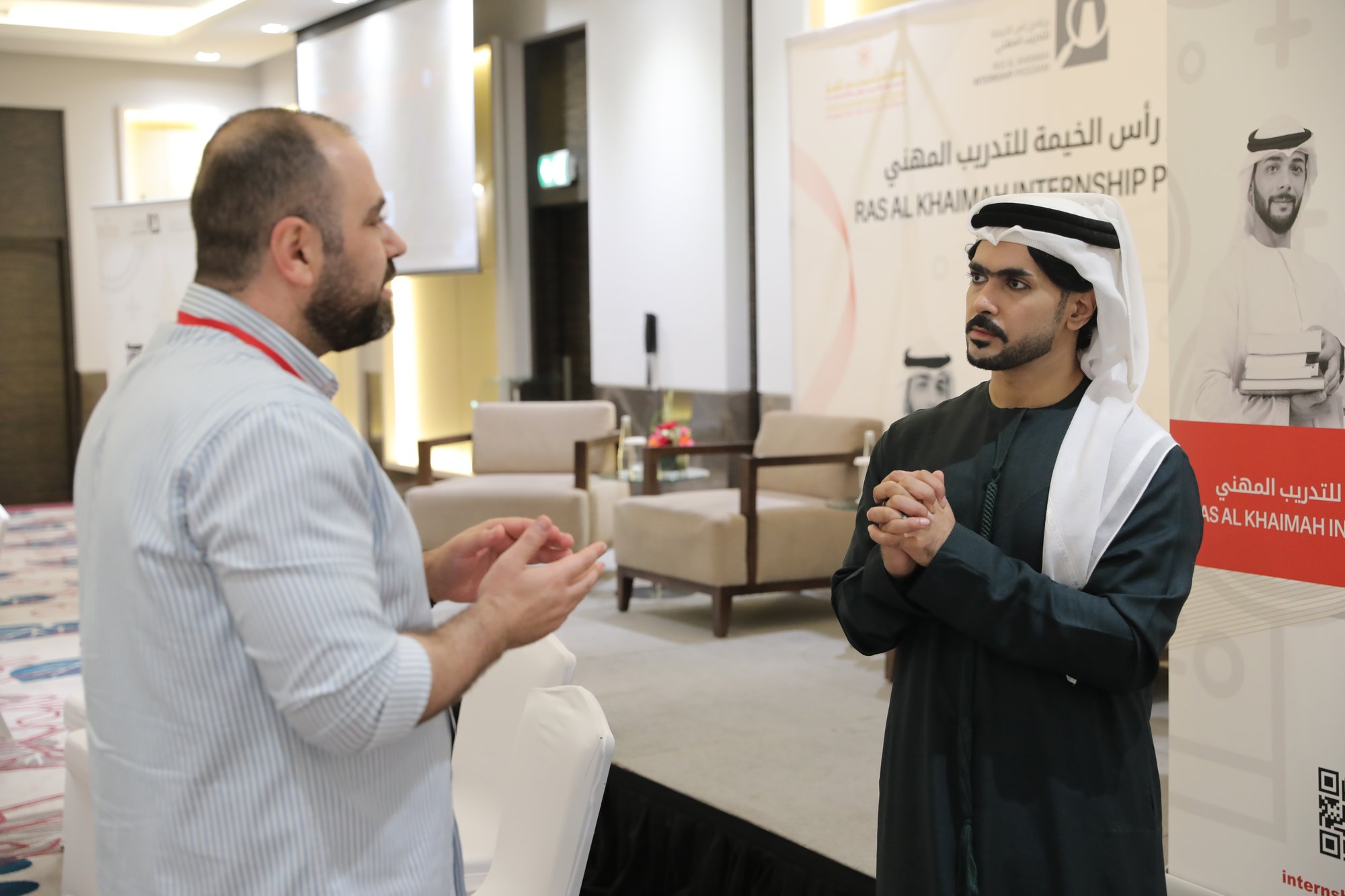
Background
Publishing research in academic journals is a crucial step in the research process, allowing scholars to contribute to their field and share their findings with a broader audience. However, the process of getting research published can be complex and challenging. This workshop aims to demystify the journal publication process and provide participants with practical strategies to enhance their chances of success.
First and foremost, participants will develop a keen understanding of the scholarship landscape of their respective academic fields through this workshop. With the help of guiding questions and targeted searches of high-quality peer-reviewed journals, participants will be able to articulate the key debates happening in their scholarship landscape and develop strategies to evolve their research praxis to meet the upcoming demands of their field. Without a deep understanding of how and why one’s research could be meaningful and impact extant scholarship, desiring to publish in journals will be largely unfulfilled.
Secondly, this workshop will inform participants on how to write compelling abstracts. Selected abstracts by competitive journals look for a nuanced blend of original scholarship, adept utilization of keywords, sound methodological practices, and effective theoretical engagements.
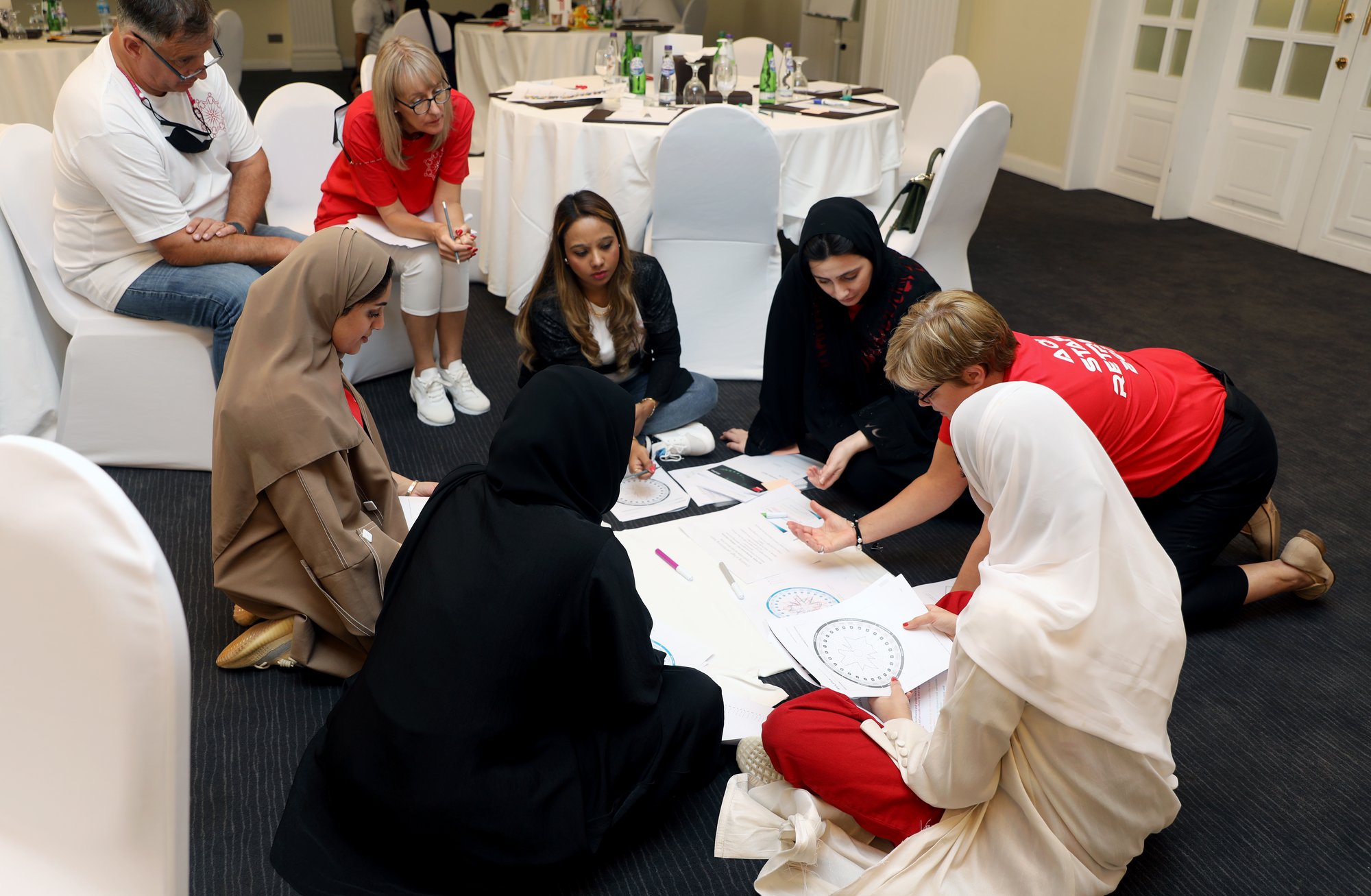
Thirdly, participants will also learn how to prepare a comprehensive writing plan to submit their articles post-abstract acceptance. From outlining the common challenges academics face in the journal writing process to common formatting errors, this workshop will take participants through the entire manuscript preparation process and share valuable strategies to optimize writing time.
Next, participants will likely be working with collaborators in their publishing journey, and negotiating these working relationships will come with their own set of challenges. For instance, navigating field-specific conflicts in terms of applying differing theoretical frameworks or research methodologies, deciding on the order of authorship, and contrasting writing styles could all pose roadblocks in the process of completing the manuscript. To that end, this workshop will present helpful tools to participants to enhance their working partnerships with collaborators to improve their chances of publishing while minimizing conflicts.
Lastly, the individual contributor’s timeline for publishing a journal article may vary depending on the quality and fit of the manuscript with the journal editors. As such, learning how to receive negative feedback from reviewers, navigating potential requests for changes in article focus to better fit the overarching journal theme, and managing delays in the publishing process are all part and parcel of successfully publishing an article. Participants will be pre-empted of such possibilities and will have the space to discuss best practices to deal with these challenges adeptly.
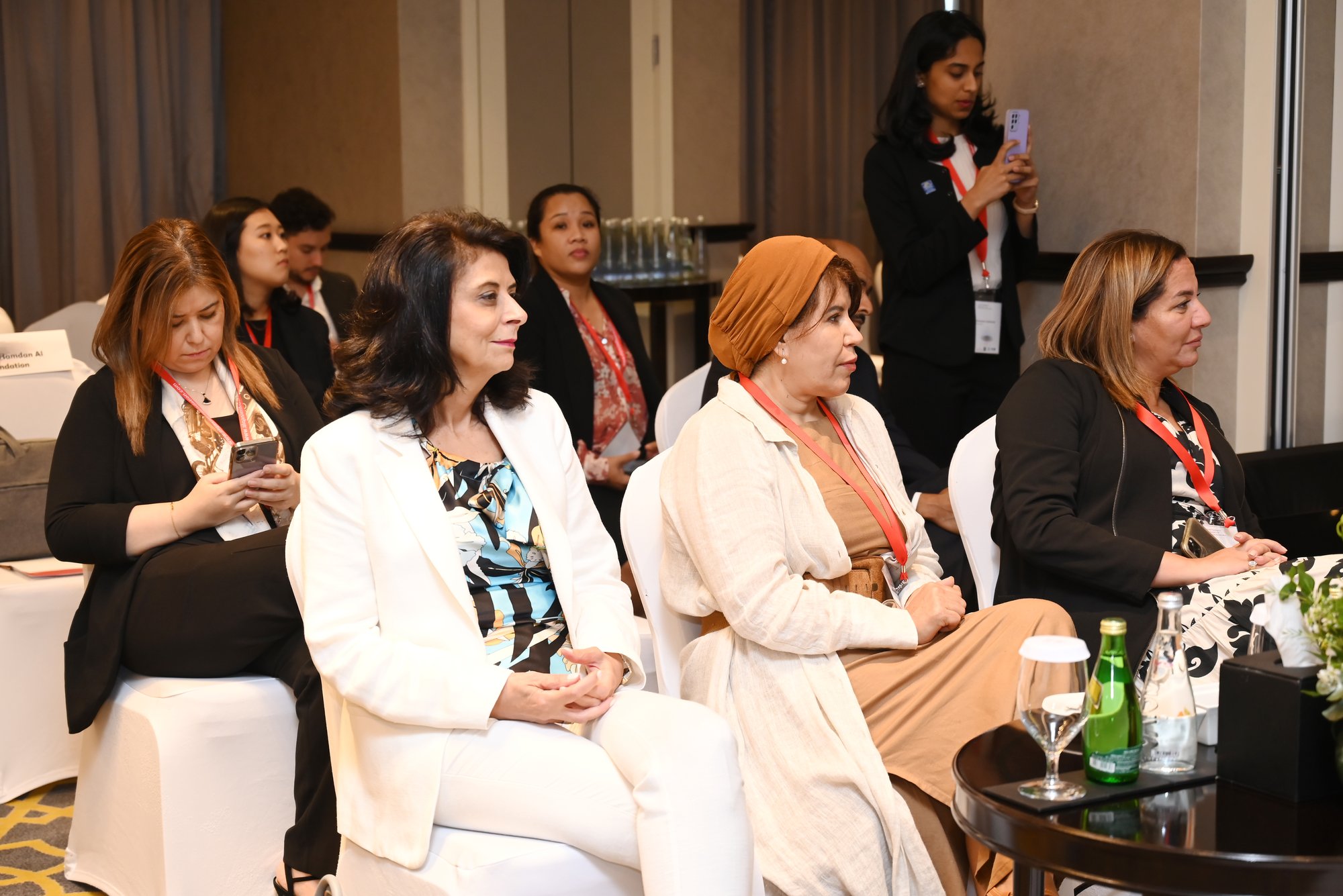
Workshop outline
This interactive workshop combines presentations, discussions, case studies, and practical exercises to give participants hands-on experience and actionable insights. Participants are encouraged to bring drafts of their research papers for individualized feedback.
Target Audience:
- Early-career researchers looking to publish their first journal articles.
- Established academics seeking to improve their publication success rate.
- Graduate students interested in understanding the publication process.
- Researchers from diverse academic disciplines.
Duration:
This half-day session allows for in-depth exploration of each topic and ample opportunities for participant engagement.
Key Takeaways:
By the end of the workshop, participants will have gained the knowledge and skills needed to navigate the journal publication process successfully. Upon completing this workshop, participants will comprehensively understand the journal publication process and be well-prepared to contribute valuable research to their respective fields. Participants will have the tools and knowledge needed to successfully navigate the intricate world of academic publishing and maximize the impact of their research within the global scholarly community. They will be better equipped to prepare and submit research manuscripts that meet the standards of academic journals and enhance their research impact.
.jpg?width=558&height=560&name=TavisJules%20(1).jpg)
Presenter
tavis d. jules (written in lower case) is a Full Professor of Cultural and Educational Policy Studies and Higher Education at Loyola University Chicago; his focus and expertise lie in comparative and international education, specifically on issues of race, terrorism, regionalism, and dictatorial transition. He is the immediate past-President of the Caribbean Studies Association, Book and Media Reviews Editor for the Comparative Education Review, an International Institute of Islamic Thought Fellow, and a Senior Fellow at NORRAG. He is the author of over 50 refereed articles, and his most recent books include: The Bloomsbury Handbook of Theory in Comparative and International Education (with Robin Shields and Matthew A. M. Thomas, Bloomsbury 2021), The Educational Intelligent Economy: Big Data, Artificial Intelligence, Machine Learning and the Internet of Things in Education (with Florin D. Salajan, Emerald 2019); Educational Transitions in Post-Revolutionary Spaces: Islam, Security and Social Movements in Tunisia (with Teresa Barton, Bloomsbury 2018); Re-Reading Education Policy and Practice in Small States: Issues of Size and Scale in the Emerging Intelligent Society and Economy (with Patrick Ressler, Peter Lang 2017); and The New Global Educational Policy Environment in the Fourth Industrial Revolution: Gated, Regulated and Governed (Emerald 2016).
Pre-Conference Workshop 2: "Designing Mixed Methods Research"
Dr. Seungah Sarah Lee, New York University Abu Dhabi
Sponsored by Sheikh Saud bin Saqr Al Qasimi Foundation
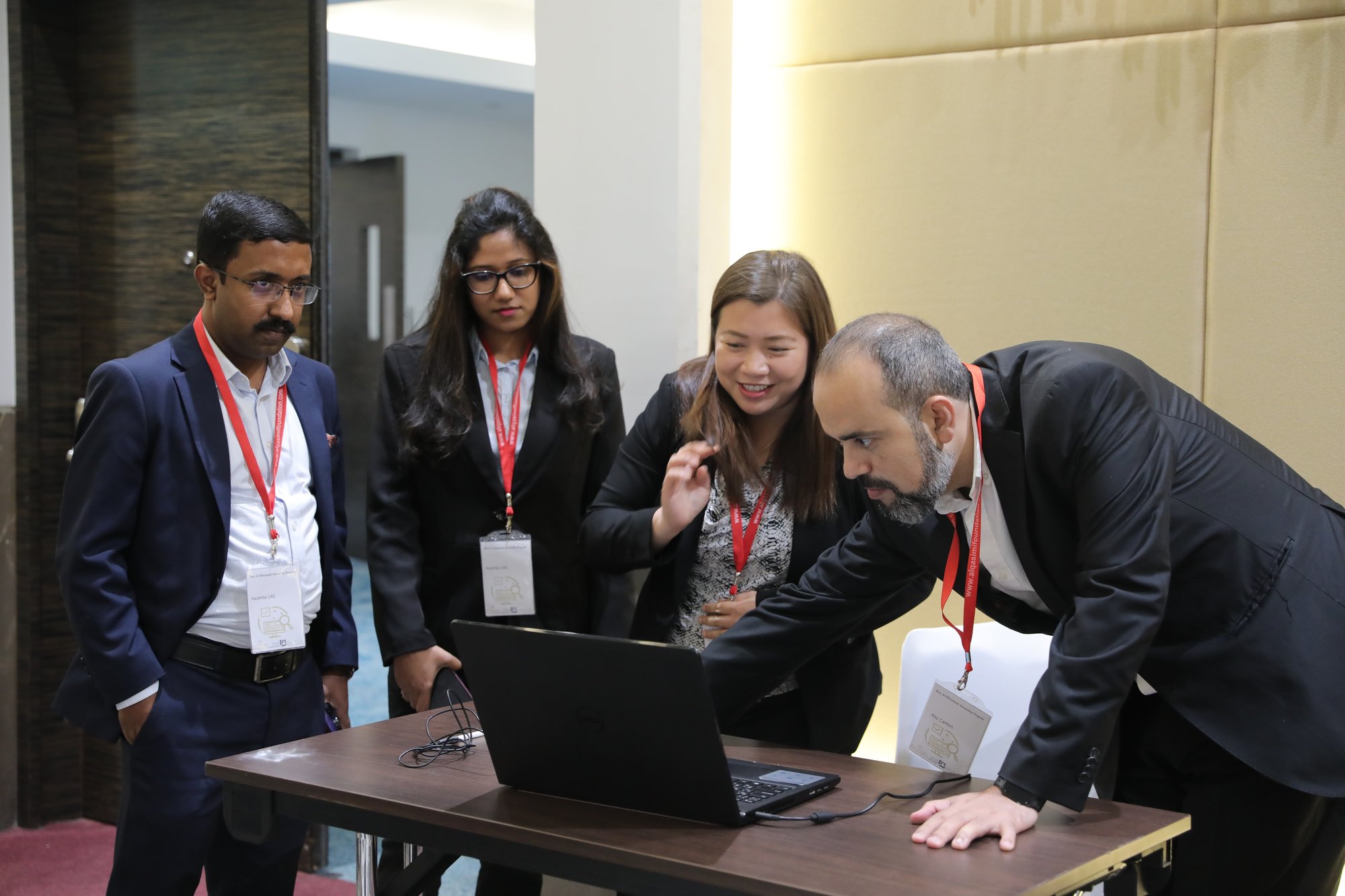
Background
Social scientists are often interested in untangling complex social issues, which require expansive data and methods to address. Thus, it is unsurprising that the use of mixed methods in social science research has increased over the past few decades. Mixed methods research typically refers to research that combines qualitative and quantitative data collection and analysis
techniques. However, there still remains considerable debate about how to best define and use mixed methods.
The goal of this workshop is to introduce participants to conceptual and practical frameworks and considerations for designing, implementing, executing, analyzing, presenting, and writing up mixed methods research. First, the workshop will discuss the varieties of mixed methods research and ask, “why (not) mixed methods?” Following, the participants will walk through the steps of designing a mixed methods research project. Upon gaining a foundational understanding
of mixed methods research design, participants will examine and evaluate applications of mixed methods research and consider the pitfalls and limitations of mixed methods research.
Further, participants are encouraged to bring ideas, drafts, and questions about their own mixed methods project including dissertations, prospectuses, funding and grant proposals, or other plans for implementing this type of research. Time will be dedicated to allow participants to give and receive feedback.
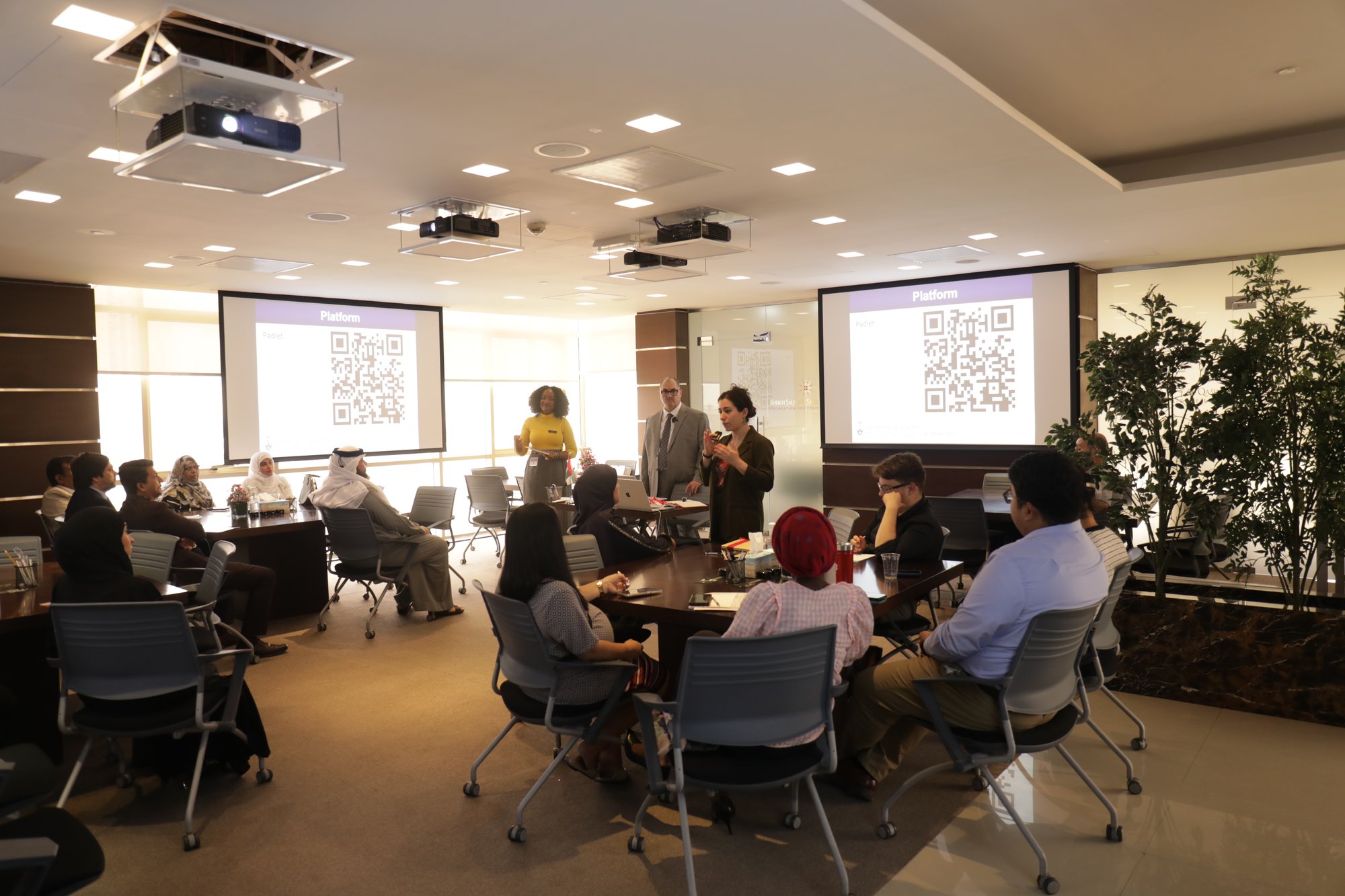
Workshop Format
This interactive workshop combines presentations, discussions, and practical exercises to give participants hands-on experience and actionable insights. Participants are encouraged to bring their research proposals and ideas to the workshop for feedback.
Target Audience:
- Researchers in diverse academic disciplines and in various industry settings
- Graduate students interested in using mixed methods in their work
Duration:
This 3-hour session allows for the exploration of mixed methods and ample opportunities for participant engagement.
Key Takeaways:
By the end of the workshop, participants will understand the different types of mixed methods research design and the benefits and limitations of such design. Upon completing the workshop, participants will have the tools and knowledge needed to effectively design a mixed-methods study.
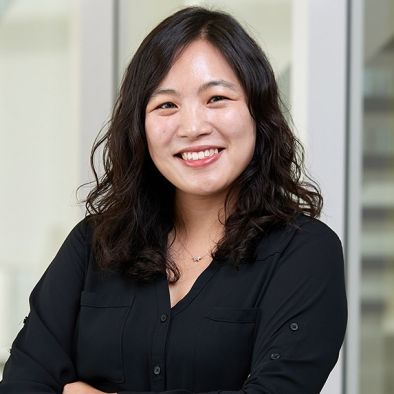
Presenter
Dr. Seungah Sarah Lee received her PhD in Organization Studies and International Comparative Education from Stanford University. Her research broadly explores how global models, scripts, and norms for development become transmitted and adapted to influence organizational forms, practices, and change.
Her primary project explores how Arab Gulf states foster a culture and environment for entrepreneurship and innovation as a part of their national development visions and the role various organizations (e.g., government, semi-government, private, universities) play in facilitating this process. Most recently, she has been involved in a community research partnership that examines how a quasi-governmental organization brokers and facilitates collaborative relationships between startup ventures and schools through edtech testbeds to encourage education innovation and development in Qatar.
Her work has been funded by the Fulbright-Hayes Fellowship, Sheikh Saud bin Saqr Al Qasimi Foundation for Policy Research, and the Stanford Abbasi Program on Islamic Studies and published in journals such as Research in the Sociology of Organizations, World Development, Prospects, in numerous book chapters, as well as policy research reports.
Keynotes and Guest Speakers
Coming Soon!
Pre-Conference Workshop
Coming Soon!



